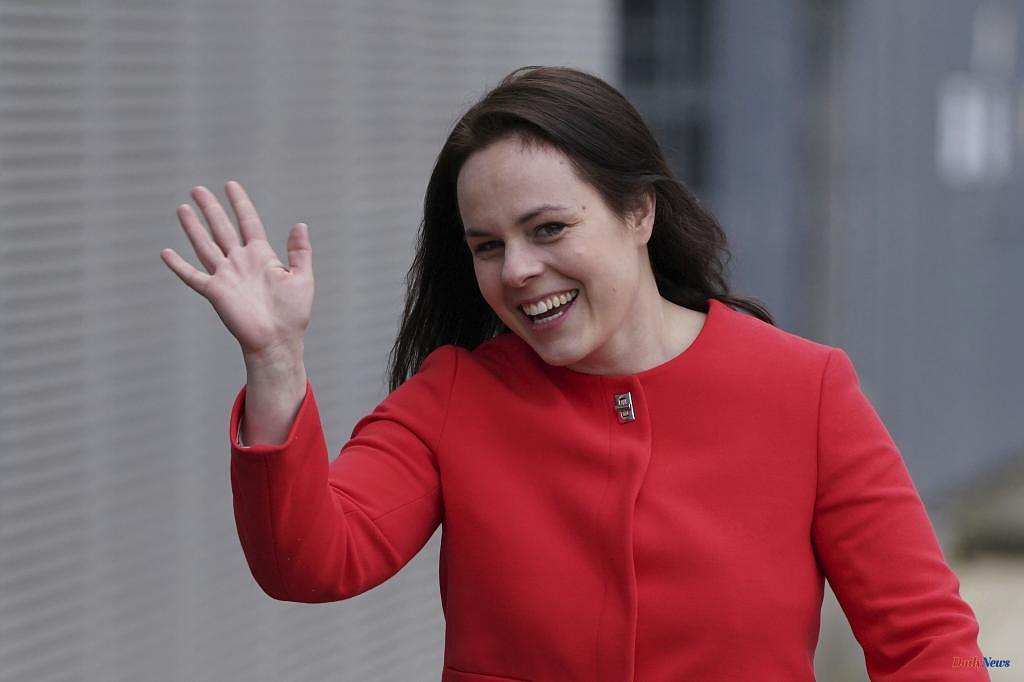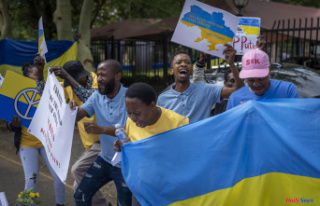Three little-known candidates with little political weight are vying for Nicola Sturgeon's scepter at the helm of the Scottish National Party (SNP), in clear proof of the void left by the pro-independence leader after more than eight years in power, and With just over two months to go before the local elections on May 4. The current finance secretary Kate Forbes, questioned for her ultra-conservative religious beliefs, part of her as her slight favourite, according to a recent poll by The Independent (with 28% of preferences). Humza Yousaf, the son of Pakistani immigrants and current Secretary of Health, remains at 20% and the regional deputy Ash Regan, the last to launch into the contest, remains at 7%. More than 30% of the nationalist militants admit that they do not know the candidates well enough and that they still do not know who to vote for. SNP heavyweights John Swinney and Angus Robertson decided not to show up and handed over the torch to the next generation at a critical time for the pro-independence cause.
More than 60% of Scots were against Sturgeon's intention to turn the next general election into a de facto referendum, following the Supreme Court ruling against holding a new sovereignist referendum after the defeat of independence in 2014 ( by 55% to 45% of the votes).
Sturgeon presented his resignation on February 15 after the controversy over the Trans Law that has divided the Scottish population and was blocked by the British Government. The financial scandal of her husband, Peter Murrell, current executive director of the SNP, also did its part to tarnish her image and precipitate her downfall, unthinkable just a few months ago, when she was perceived as a symbol of stability in Edinburgh in the face of the incessant crisis of the tories in London. Some 100,000 SNP militants will be able to vote for the three candidates for succession in order of preference, in a process that starts on March 13 and ends on March 27. If a single candidate achieves more than 50% of the votes, he will automatically be proclaimed the new leader of the SNPs. If none of them achieve it, the second preferences would be counted. The new leader of the SNP will be proclaimed on March 27 and will provisionally occupy the post of chief minister until an election is held in which the nationalists aspired to achieve an absolute majority in the Holyrood Parliament. Sturgeon's sudden departure has left the nationalist party in a precarious position, however, in the face of the remarkable recovery in Scotland of Keir Starmer's Labor Party. Kate Forbes, 32, was seen as one of the SNP's strong promises, but her evangelical creed and her membership in the Free Church of Scotland have taken their toll on the start of her campaign. Forbes has come to express her opposition not only to gay marriages but to children out of wedlock. Her ultra-conservative positions on her social issues set her apart from the common Scottish voter.
Humza Yousaf, 37, also arrives touched by the contest for his role as Secretary of Health in the midst of the post-Covid public health crisis. Yousaf is a Muslim, though he has stressed that he will not put his faith ahead of political decisions. In fact, he is the only one of the three candidates who has insisted on his intention to go ahead with the Trans Law that allows gender self-determination at the age of 16 and without a medical diagnosis of dysphoria. Very close to Sturgeon, he also intends to continue his combative stance on the issue of independence. Ash Regan, 48 years old and born in Glasgow, resigned precisely as Secretary of State for Communities of the Sturgeon Government because of her opposition to the Trans Law. The intention of her is to renounce this legislation and adopt a more constructive position with London and with other parties to promote the independence of Scotland by alternative means of holding a new referendum.
According to the criteria of The Trust Project












